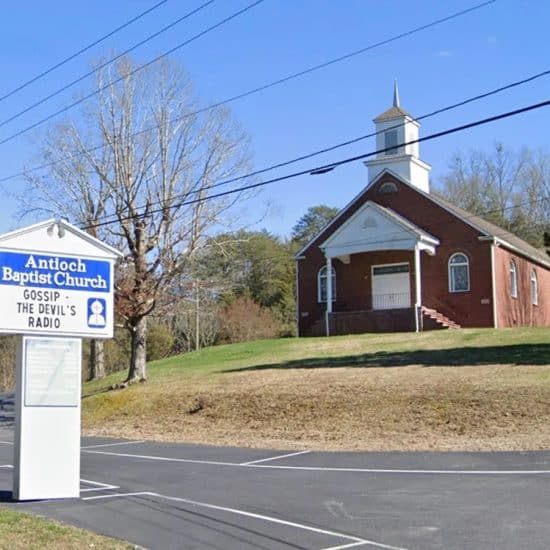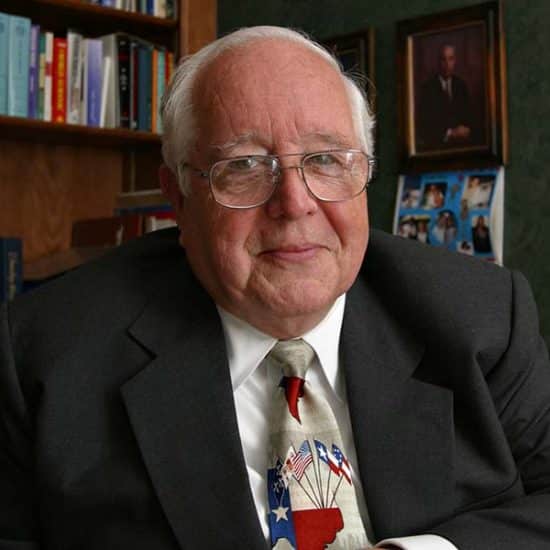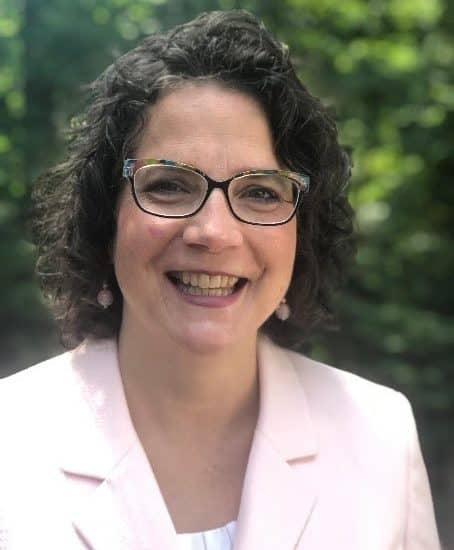WASHINGTON (ABP) – An interfaith leader and Baptist minister said a recent meeting of conservative evangelicals aimed at coalescing support for a Republican presidential candidate is part of a larger movement by individuals and groups that are attempting to “dominate the political process in the name of religion.”
Interfaith Alliance head Welton Gaddy said on the Jan. 21 broadcast of the State of Belief radio program that he was saddened but not surprised by reports that a private gathering of more than 150 invited guests at the ranch of retired Texas Judge Paul Pressler ended in “conflict and contention.”
Gaddy, pastor for preaching and worship at Northminster (Baptist) Church in Monroe, La., said the confab — complete with allegations of stuffed ballot boxes and a sham endorsement for Rick Santorum — took him back to the late 1970s. That’s when layman Pressler and Texas minister Paige Patterson announced a strategy that would allow them in no more than a decade to take over the Southern Baptist Convention and replace the so-called liberal leadership with conservatives.
The eventual victors touted the movement as the “conservative resurgence” and claim that it rescued the nation’s second-largest faith group from liberalism and decline. Gaddy, who was active in SBC leadership until the 1980s, said he called it “political fundamentalism,” which he defined as “a manipulation of theological issues and church loyalty to advance purposes latched on to interests in politics, money and power.”
Before Pressler and Patterson came onto the scene, Gaddy said, Southern Baptists were staunchly committed to church-state separation. “No one even thought about bringing politics into a church,” he said. “In fact, most Baptists kept their distance from politics.”
Over the years, Gaddy said, fundamentalists and progressive thinkers in Southern Baptist life had worked together out of shared commitment to religious freedom and cooperation among believers, but that was about to change.
“Pressler and Patterson wanted no such cooperation,” Gaddy said. “Division would better serve well their agenda, which was political, not spiritual or even much theological.”
Local pastors were used in precinct-style politics to recruit messengers and take them by busloads to convention meetings, Gaddy said. All kinds of people — men, women and children — were instructed to vote for the conservative candidate for president, who in turn used powers of appointment to put like-minded Baptists on key committees and boards of trustees.
Gaddy said he was among a small group of leaders who tried to stop the movement. “We started early and worked long hours vigorously,” he said. “But some of the harshest criticism leveled at us came from our friends, denominational leaders whose jobs we were trying to protect and the way of cooperation that allowed all of us to work together. Naïve idealists called the whole movement a tempest in a teapot that would never have much impact.”
A decade later, Gaddy said, “all of those former leaders had lost their jobs and the entire convention had a new agenda.” All of it happened, Gaddy said, “without most pastors telling members of their congregations what was really happening to their convention.”
“Convention meetings became sites for building support for presidential candidates like Pat Robertson,” he recounted. “When Jimmy Carter and Gerald Ford were campaigning against each other in a presidential election year, officers of the convention invited Gerald Ford to address the convention and decided to extend no invitation to their fellow long-time Southern Baptist, Jimmy Carter. If anyone had not seen that the agenda of the power-wielders was political rather than spiritual, all doubts should have been removed at that point.”
Today, Gaddy said, and the Southern Baptist Convention has moved “so sharply from its historic Baptist tradition that the Baptist name hardly seems to fit this convention anymore.”
“When you enter the political arena for partisan purposes, you become a politician, like it or not, whatever you describe as your motivation,” Gaddy said. “Few people will listen to your moral-spiritual rationalizations about your activity; your actions speak louder than your words. Seeking to build a bloc of partisan voters for the Republican primaries is by any definition raw politics. And so, ministers involved in such an effort not only bring criticism to themselves but to religion itself. And, I take exception to that.”
Gaddy said a church, synagogue or mosque can take part in partisan political campaigns. All they have to do is forfeit their tax-exempt status as a religious organization and conduct their campaign with funds that aren’t taken from the offering plate.
“But no, the guys in Texas wanted to have it both ways; to be involved in a religious movement and also be political power brokers,” he said. “So, news reports talk about evangelicals blaming one another for voting irregularities, some saying that a Catholic in the meeting was the cause of all the trouble. How can that be good for religion?”
Gaddy faulted the presidential campaigns for listening to “religion-cloaked political partisans who want more control in the Republican Party and ultimately want to rule this nation.”
“The authors of our Constitution tried to prevent this,” Gaddy said. “Many of us have worked here for a proper separation of religion and partisan politics. Today I weep both for religion and the nation.”
-30-
Bob Allen is managing editor of Associated Baptist Press.
Previous story:




